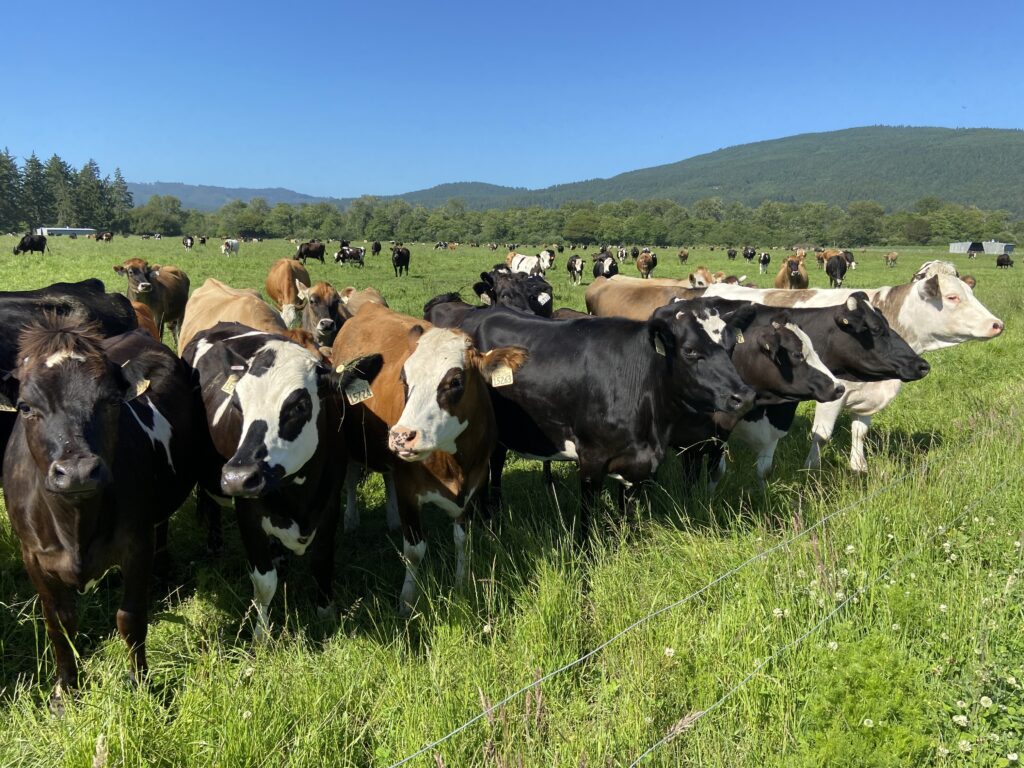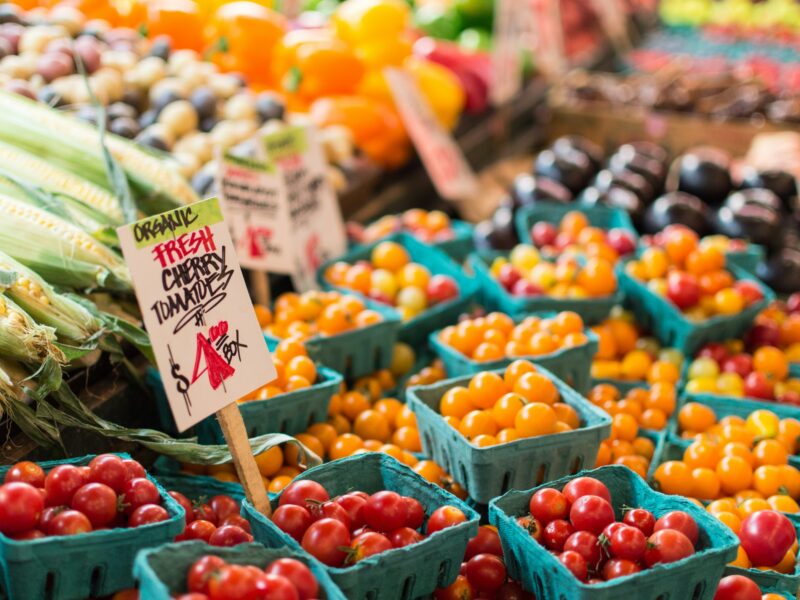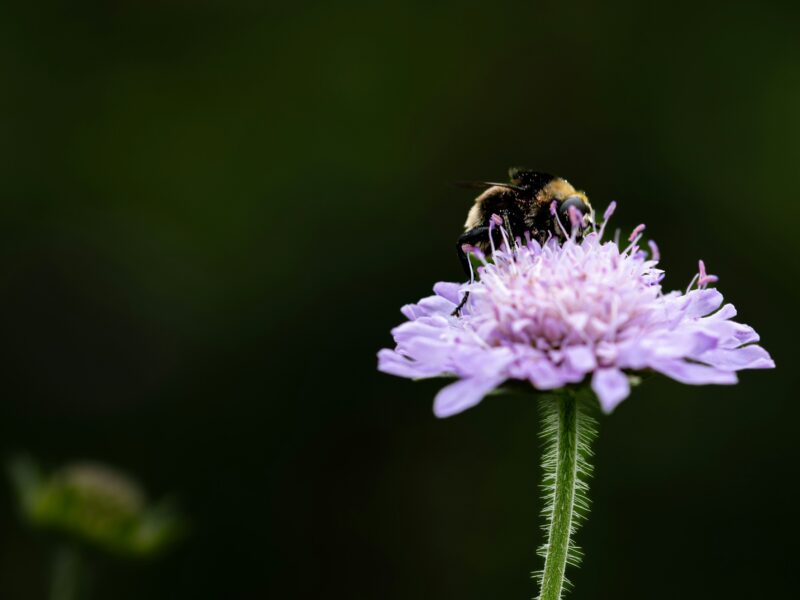Introducing Alexandre Family Farms, a USDA-certified organic dairy brand. We are thrilled to share this new Only Organic brand partner with you in this exclusive interview.
Name: Owners, Blake & Stephanie Alexandre
Company Name: Alexandre Family Farm
Location: Crescent City, CA

- Tell us the story of your organic brand! What is the background history of the brand?
We are Blake and Stephanie Alexandre, who own Alexandre Family Farm. I guess you could say the brand started when I, Stephanie, a 4th generation dairy farmer in Southern California, was a little girl and I prayed I’d marry a dairy farmer! The intention set, I grew up, went to college at Cal Poly San Luis Obispo California, and met Blake, another 4th generation dairy farmer. Blake grew up on a dairy farm in Northern California and as a young child loved being outside with the calves and cows. When we met at Cal Poly he was driving a car with license plates that said LUVCOWS. We married and started a family. In 1992, we bought a beautiful piece of farmland in Crescent City, just south of the Oregon border, where the redwoods meet the sea along California’s rugged coastline.
It was in 1999, when our children were young, that we made the business decision to go organic so that we could have a farm to pass on to our children. At the time we were farming conventionally – milking about 1,400 cows and could not compete with the dairies milking 10,000, who were being paid the same price for milk as we were. Competing in that economic environment was just not sustainable.
We heard some dairy brands were looking for organic milk and we became certified in 2001, in order to get a higher price for our milk. In 2003, we attended an Acres USA conference, and our true passion about organic health was ignited when we listened to a few keynote speakers and doctors talking about going to the Farm instead of the Pharmacy for health. Blake and I came home from that conference with suitcases loaded with books. We studied about biological farming and pasture-raising nutrition from the soil up. We were taken down a path for better foods and how they are produced, and we connected with our full purpose as farmers: To do no harm to the soil by farming in harmony with nature as our ancestors did a few generations before us. We are now farming the way our great-grandparents did and our love of learning about how to nurture nature has continued for the past 24 years.
Today we are proud to work on our Certified Organic and Regenerative farm alongside our children, together as a family.
We operate five grass-based, certified organic, and regenerative dairies with crossbred A2/A2 dairy cows on irrigated pastures in Humboldt and Del Norte, California counties. We also grow some of our own organic alfalfa hay on cropland in Modoc County.
- Why did you choose to create a certified organic product?
Although we had been farming organically since 2001, we did not have our own brand; we sold our milk to a co-op and established organic brands. All the while, we were watching people leave dairy for environmental or digestibility reasons. Along with studying about soil and nutrient density, Blake and I also learned about the beta-casein protein in milk that had mutated and that was suspected to be the cause of the digestive and auto-immune problems many people were having with milk. This mutated variant is called A1 and is more difficult to digest. We learned that all mammals normally produce A2 beta-casein milk, including certain cows. We decided to breed the mutated A1 genetics out of our herd. We genetically test every cow and now have a 100% A2/A2 genetics herd, producing 100% A2/A2 organic milk.
With our organics and our 100% A2/A2 dairy, we knew we had something very special and we wanted to bring it to market.
In 2016, at the encouragement of some natural retail veterans, we explored creating our own brand and launched our first organic products into the marketplace in 2017.
We have been steadily selling into new stores and regions and now have 100% A2/A2, certified regenerative organic grass-fed milk, yogurt, and kefir available nationwide, as well as pasture-raised certified generative organic eggs in the West.
- How long has your brand been certified organic?
Since day one when we launched the brand in 2017. Our dairy has been certified organic since 2001, and in 2003, when we really learned about the benefits to people and the planet, we became organic consumers in our kitchen and incorporated it fully into our lives.
- Is it difficult to source certified organic ingredients?
Our cows live on our certified organic pastures, so all of our cows are grass-fed organic. But we do supplement some of our cows with certified organic grain, which has a more limited variety than conventional grain. But we don’t usually have trouble sourcing the organic grains we need.
- What myth would you like to bust about being an organic food pioneer or the organic industry as a whole?
Three myths we would like to bust: The myth that organic is not different than conventional, it’s just more expensive; The benefit of organic in most areas – from production to consumption – is significantly different than conventional. The myth is that cheaters or fraud aren’t caught; They are caught – it sometimes just takes a long time. The myth that organic prices are gouging the consumers: Organic farming is usually more labor intensive and has lower yields and is thus more expensive to produce.
- What is the biggest challenge you face as an organic pioneer?
Educating and communicating with all the stakeholders – from the consumers to the bankers about the costs and benefits of organic.
All research seems to be funded by Big Ag, which often doesn’t apply to organics, so organic pioneers often have a long road to travel because we don’t have the database of information to learn from. Some of us have taken a chance and are pioneering ways of farming and are building a new knowledge base. With our soil regenerating practices on our farm, we are proving – at scale – the long-term benefits for individual and planetary health. We are grateful to Organic Voices and the Organic Center for the work they do in research and communication.
- Where do you see organic food, farming, and products in the next 5 years?
We believe it is going to compound at a faster rate. More and more people are seeing the problems in conventional and highly processed products that are killing their gut and that are contributing to the rise in mental illness and obesity. Organics will play an increasing role in solving our national health crisis.
- What advice would you give to a younger generation of entrepreneurs looking to get into the organic industry?
Follow your passion – love what you do. People get excited if you are excited about something. Work for a company you believe in. Network with others who are passionate about organics so you can support and learn from each other.









